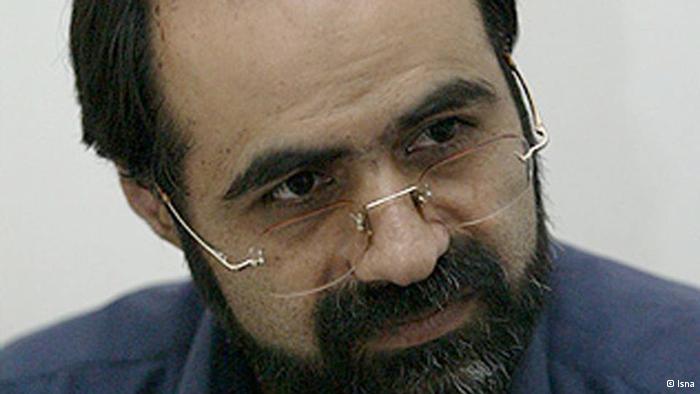Journalist Remains in Prison Beyond End of Sentence
The journalist Saeed Razavi Faghih has yet to be released from prison even though he completed his one-year sentence on February 28, 2015, because he is facing new, as yet unspecified charges, his brother Massoud told the International Campaign for Human Rights in Iran.
“When I followed up the reasons why my brother had not been released, I realized he is facing another case but he himself doesn’t know what he is being accused of this time,” Massoud Razavi Faghih said. “We still don’t know why he has to stay in prison.”
Asked about the new charges facing Saeed Razavi Faghih, Massoud told the Campaign that his brother’s case has been forwarded to Branch 15 of the Tehran Revolutionary Court. “When I went to court to request Saeed’s release until his second judicial case is reviewed, Judge Salavati did not give me a specific answer. He just said that Saeed has to be in prison. He did say Saeed will have his trial court in May, but we couldn’t figure out based on what reasons Saeed couldn’t be released on bail until May. This decision is illegal and is an example of prisoner abuse.”
Massoud continued, “Judge Salavati told us that he does not answer to inquiries about the charges, and that he would only tell the suspect or the lawyer [about the charges], but Saeed doesn’t have a lawyer for his new charges yet, and we are looking for a lawyer for him, and that is not a simple deed, as the Judiciary does not approve of certain lawyers, and some lawyers refrain from accepting political cases. But Saeed has not been informed of his charges, either.”
Massoud told the Campaign, “On March 19 all prisoners had public meetings [with their relatives]. I saw Saeed in a booth. I noticed his wrists were black and blue. When I asked why, he said it was because they had tied his arms and legs very tightly when they took him to the hospital for his heart ailment a few days before. When the pain became too much, Saeed complained but the guards didn’t respond so he told them he didn’t want to be treated like this and they brought him back to prison.”
Saeed Razavi Faghih, who has written for several reformist newspapers, underwent open-heart surgery a year ago, but has remained in prison despite the advice of his surgeons.
“This is against the law. It amounts to unnecessary punishment of a sick prisoner who has completed his term,” Massoud Razavi Faghih told the Campaign. Political prisoners and prisoners of conscience in Iran are routinely denied medical care, in violation of both Iranian and international law.
The journalist’s previous sentence was for “assembly and collusion against national security,” apparently based on his articles and speeches, although it was never made clear.







